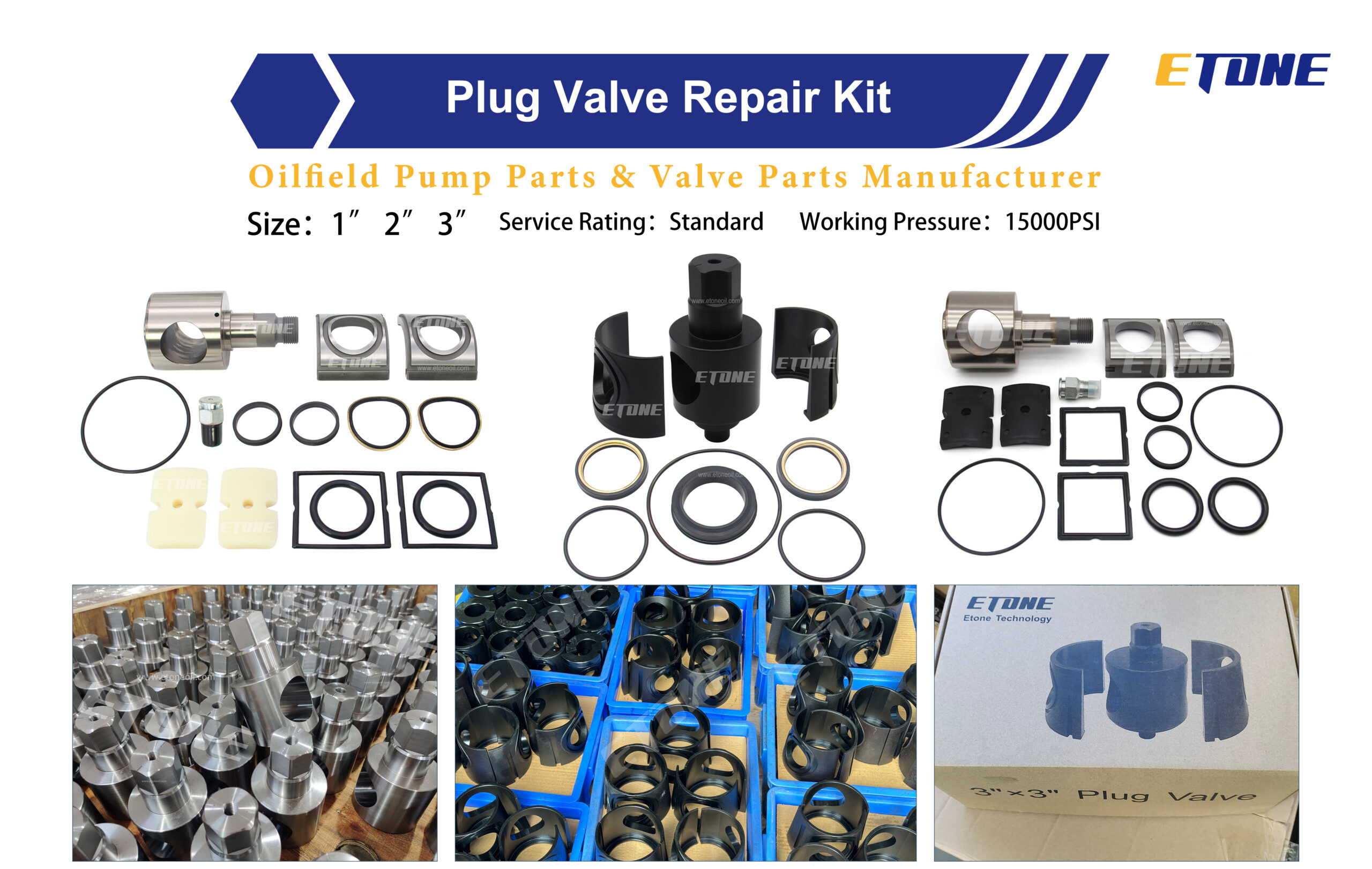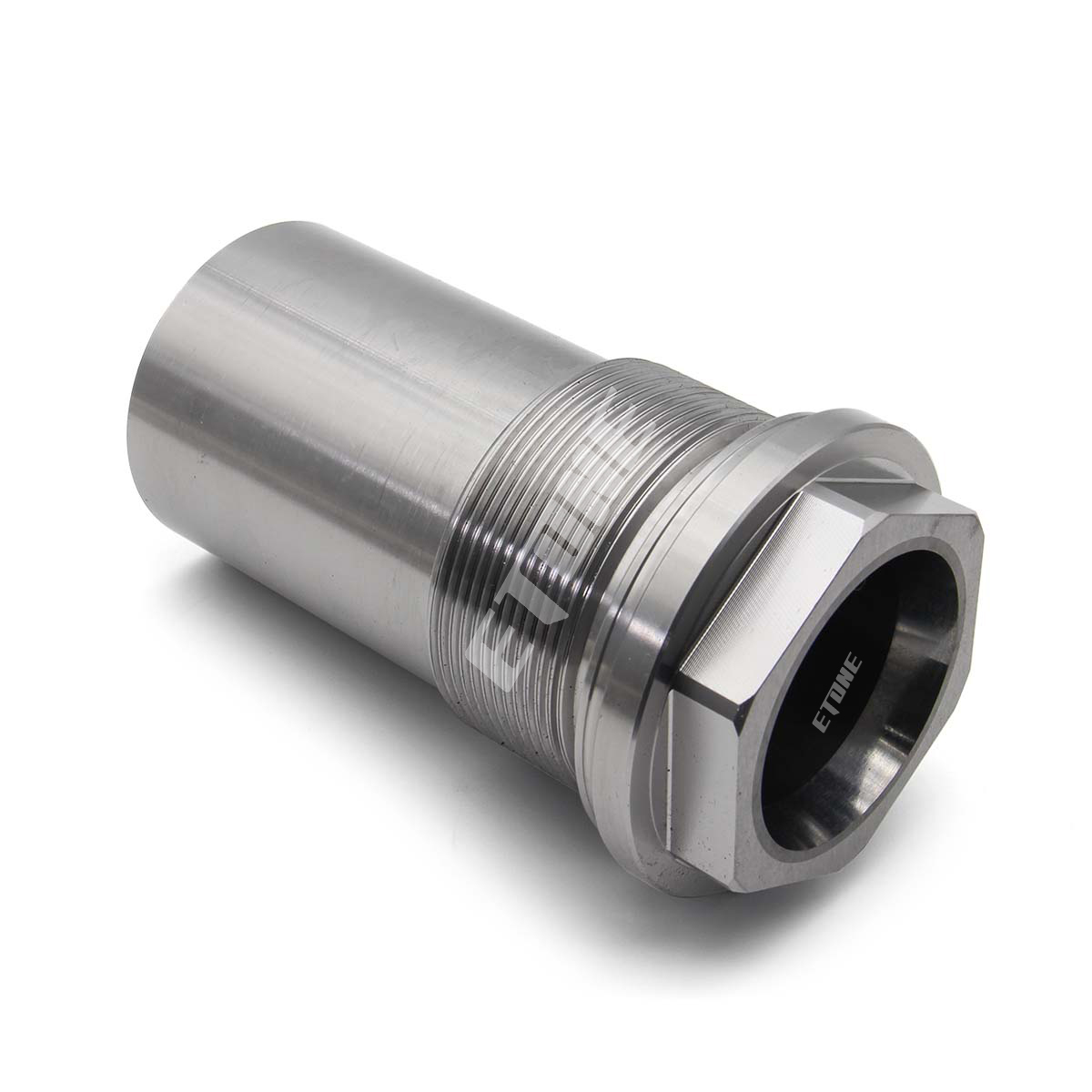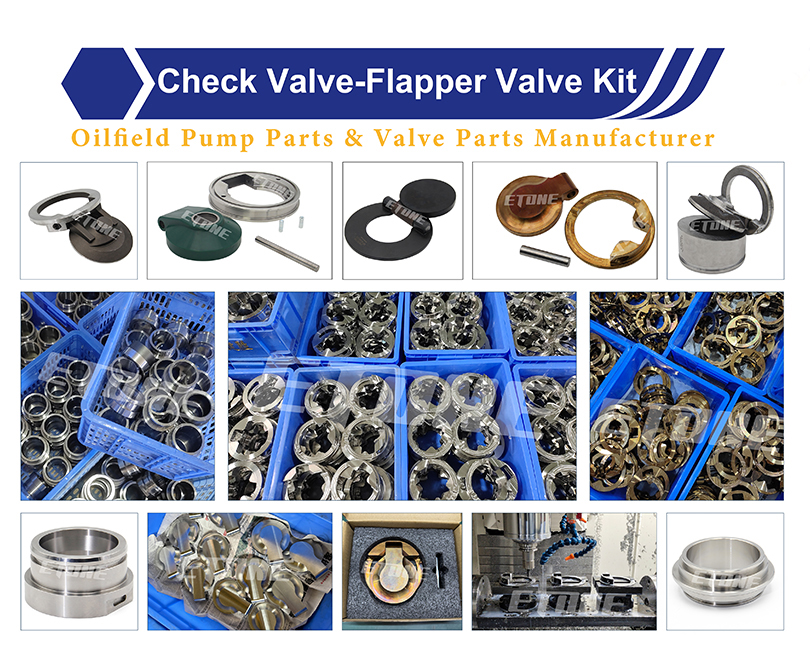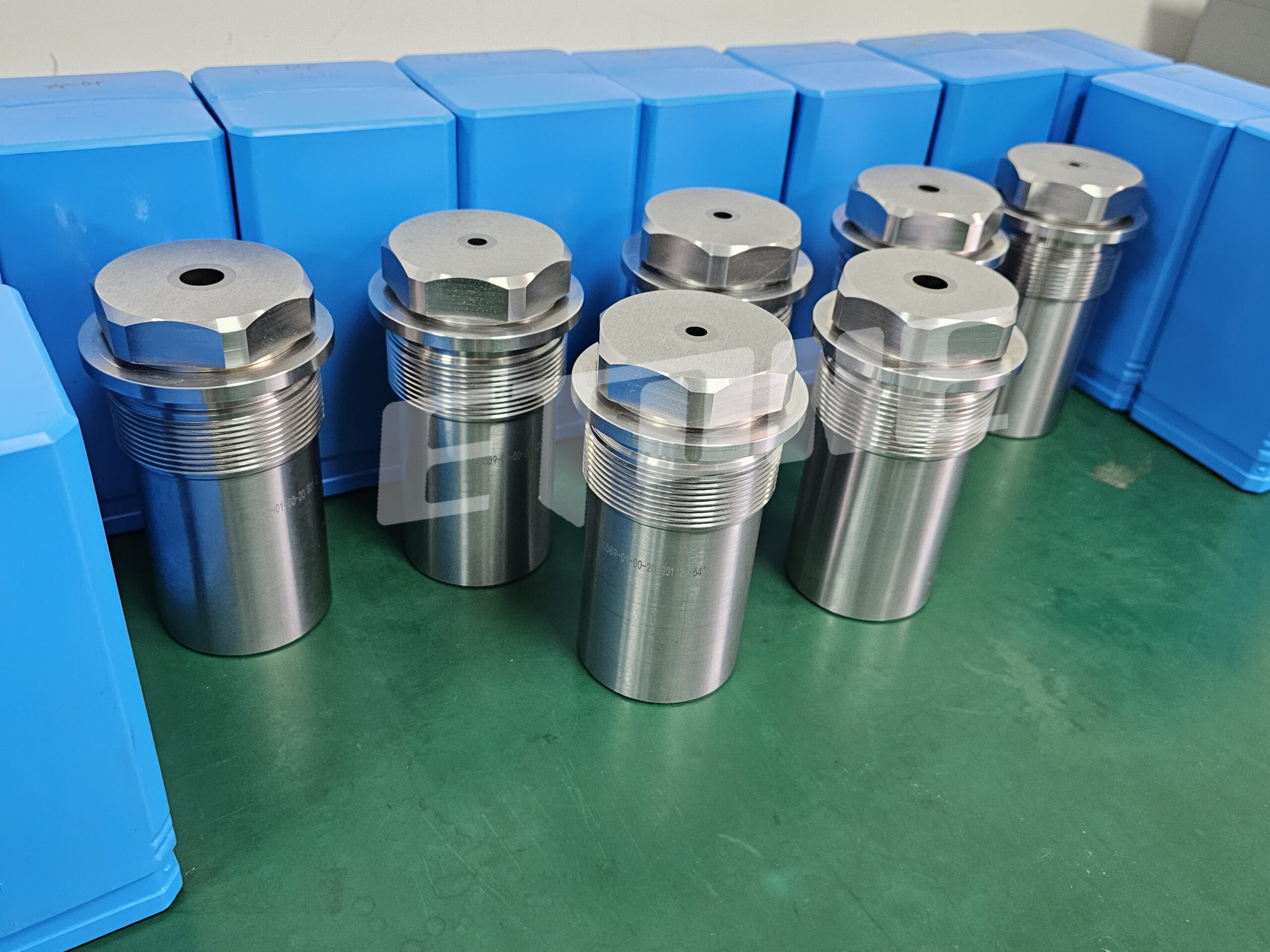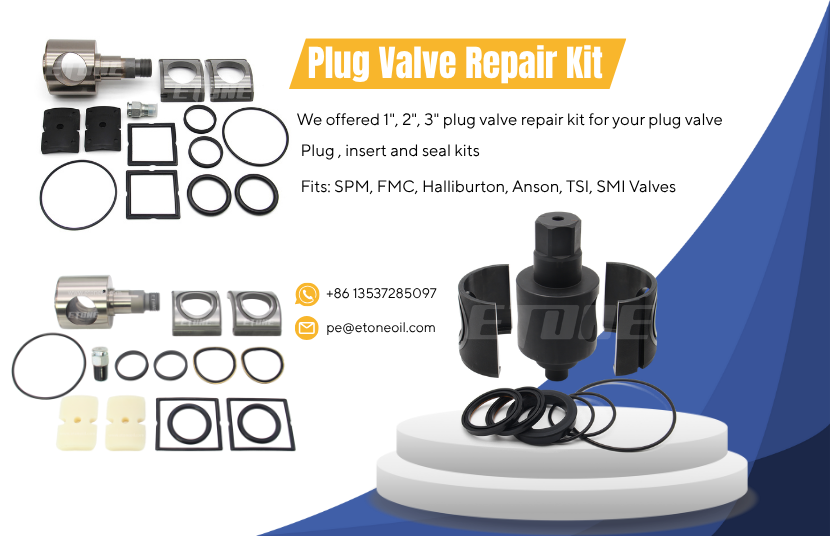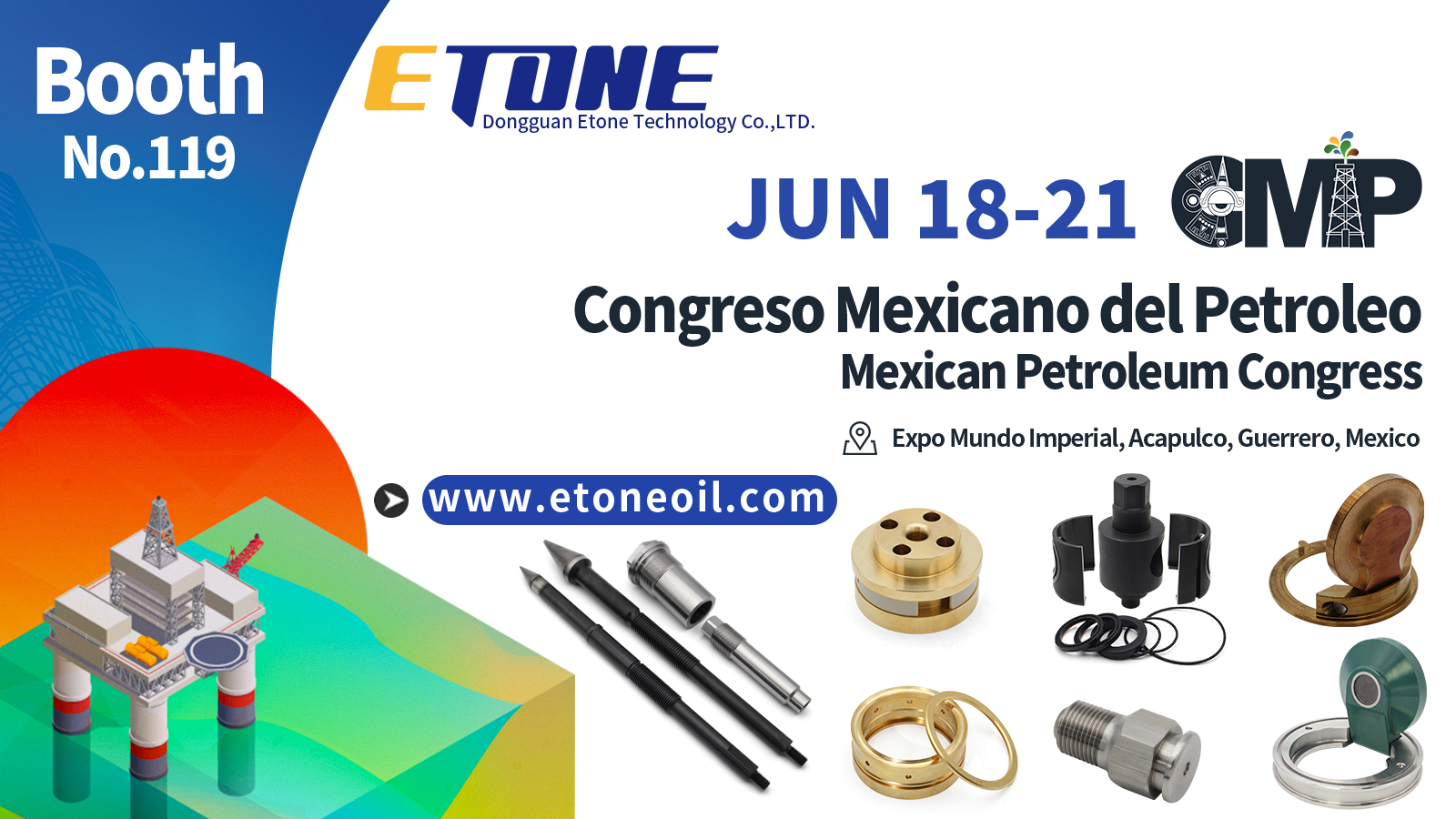What Are Choke Beans and Why Are They Critical in Oilfield Operations?
Choke beans are replaceable flow control components used inside choke valves. Their primary purpose is to regulate the flow of oil, gas, or drilling fluids by forcing the fluid through a precisely sized orifice. This simple but effective mechanism makes choke beans one of the most essential wear parts in wellhead assemblies and production systems.
At Etone Oil, with more than 10 years of choke bean and oilfield accessory manufacturing experience, we’ve seen how the correct bean choice directly improves safety and efficiency in drilling and production. Our engineers frequently advise drilling contractors and service providers to stock multiple choke bean sizes, since well conditions change over time.
Buyer’s Tip: Never underestimate the role of choke beans; selecting the wrong type can lead to excessive wear and costly downtime.
Function of Choke Beans in Drilling & Production
In drilling and production, choke beans provide precise flow restriction to manage wellbore pressure and protect downstream equipment. When drilling into high-pressure formations, controlling flow rates is essential to avoid blowouts and ensure the safety of personnel and assets.
Our production engineers often recommend API 6A–compliant choke beans for drilling projects, since they meet internationally recognized requirements for safety and interchangeability. In our workshops, we’ve seen how clients who ignored API sizing standards struggled with poor sealing and premature wear, forcing costly replacements.
Buyer’s Tip: Always plan for a range of choke bean sizes to adapt to fluctuating flow conditions in drilling and production.
Key Industries and Applications
Choke beans are widely used across different oilfield sectors. Drilling contractors rely on them during well control operations, while wellhead manufacturers incorporate them into choke valve assemblies as standard components. Oilfield service companies frequently use choke beans in well testing packages, where accurate flow control is vital for data quality and safety.
Etone Oil currently supplies choke beans to over 30 countries worldwide, including major markets in the Middle East, North America, and South America. This global reach gives us direct insight into how different operators adapt choke bean materials to specific conditions—from high-sand gas wells in Oman to high-pressure liquid-rich wells in Texas.
Buyer’s Tip: Match choke bean specifications not only to equipment but also to your industry application—requirements vary between drilling, testing, and production.
Factors to Consider When Selecting Choke Beans
Choosing the right choke beans is not a one-size-fits-all decision. Buyers must consider factors such as correct sizing, material durability, compatibility with choke valve design, and type of operation.
Based on our factory production and field experience, we strongly advise buyers to confirm with both OEM technical drawings and API/ISO certification standards before finalizing a purchase. This ensures not only proper fit but also consistent reliability.
Buyer’s Tip: Think of choke beans as an investment—proper selection minimizes long-term operational costs, not just initial purchase price.
Correct Bean Size Selection
Bean size determines the diameter of the flow orifice, which directly influences flow capacity. Most manufacturers follow API size references, which standardize bean diameters across suppliers. Typical sizes range from 12/64″ to 40/64″.
In Etone’s factory, our engineers often help customers calculate flow requirements using bean sizing charts. For example, in one project for a Latin American operator, upgrading from 14/64″ to 18/64″ significantly improved flow stability without exceeding separator design limits.
Buyer’s Tip: Avoid ordering choke beans based solely on supplier stock—always confirm bean size against operational design requirements.
Material Selection for Durability
The choice of material significantly influences the service life of choke beans. Tungsten carbide (WC) is the most common choice for highly abrasive flows, while stainless steel and alloy steels are suitable for less severe environments.
Etone Oil manufactures choke beans with WC+Co (tungsten carbide with cobalt binder), which achieves hardness levels above HRA 90—ideal for wells with high sand production. Our clients report that WC choke beans last 3–5 times longer than stainless steel alternatives in such conditions.
Buyer’s Tip: Select tungsten carbide for abrasive conditions—choosing cheaper materials in such environments will cost more in the long run.
Positive vs. Adjustable Choke Beans
Positive choke beans feature fixed orifice sizes and are valued for reliability. Adjustable chokes provide operational flexibility but require more frequent inspection.
From our production perspective, positive flow beans with WC inserts are best suited for long-term production wells, while adjustable chokes are preferred in early well testing phases where flow varies frequently.
Buyer’s Tip: Don’t confuse flexibility with durability—positive choke beans often outperform adjustable systems in harsh, abrasive environments.
Compatibility with Choke Valve Designs
Not all choke beans are universally compatible. Each choke valve model requires specific choke stem and seat designs.
Etone engineers regularly assist clients by cross-checking bean dimensions against OEM choke valve drawings. This prevents costly mismatches that can lead to poor sealing and accelerated erosion. Our machining process ensures tolerances within ±0.01 mm for a precise fit.
Buyer’s Tip: Always confirm choke bean compatibility with your choke valve design—misalignment leads to poor sealing and safety risks.
Practical Tips for Comparing Choke Bean Suppliers
Supplier selection plays a key role in reliability. Beyond price, buyers must check manufacturing quality, technical support, and logistics performance.
Etone Oil, with its ISO 9001:2015 certified quality management system, guarantees traceable raw materials and full inspection reports for every batch of choke beans. We are actively preparing to obtain the American API certification. We recommend that buyers request MTC (Material Test Certificates) and pressure test results before confirming orders with any supplier.
Buyer’s Tip: Evaluate suppliers as partners, not just vendors—strong technical support reduces risks during critical operations.
Cost vs. Performance Considerations
While lower-cost options may seem attractive, real savings come from lifecycle cost reduction. For example, one of our Middle East clients reduced downtime costs by 40% after switching from alloy steel to WC choke beans, even though unit price was higher.
Buyer’s Tip: Look at cost per operating hour, not just purchase price—cheap beans often cost more over time.
Common Mistakes to Avoid When Selecting Choke Beans
Common errors include:
-
Ignoring API sizing standards.
-
Choosing unsuitable materials for abrasive wells.
-
Overlooking choke valve compatibility.
-
Relying only on lowest price quotations.
Our engineers often warn clients that using non-API-certified aftermarket choke beans leads to leakage and premature wear, creating more risk than savings.
Buyer’s Tip: Avoid shortcuts—cutting corners in choke bean selection often results in greater losses than the savings achieved.
Conclusion: Choosing the Right Choke Beans for Long-Term Reliability
With a decade of manufacturing experience and customers in 30+ countries, Etone Oil has seen how proper choke bean selection ensures long-term well control reliability. The correct choice balances API-certified sizing, material durability, valve compatibility, and supplier reliability.
Final Advice: Treat choke bean selection as a strategic decision. Always confirm API/ISO certification, select the right materials, and partner with suppliers who understand both manufacturing and field performance. This is the only way to secure safe, efficient, and cost-effective operations in oilfield drilling and production.
Ready to Find the Right Choke Beans for Your Project?
At Etone Oil, we combine over 10 years of manufacturing expertise with strict API 6A and ISO 9001 quality standards to deliver choke beans that meet the toughest oilfield conditions. Whether you are a drilling contractor, equipment manufacturer, or project procurement manager, our engineering team can provide detailed technical specifications, customized sizing charts, and material recommendations tailored to your well conditions.
👉 Fill out our inquiry form or email to pe@etonoil.com contact our engineering team today to request a technical datasheet, quotation sheet, or samples. Let us help you reduce downtime, optimize performance, and ensure reliable flow control across your projects.

